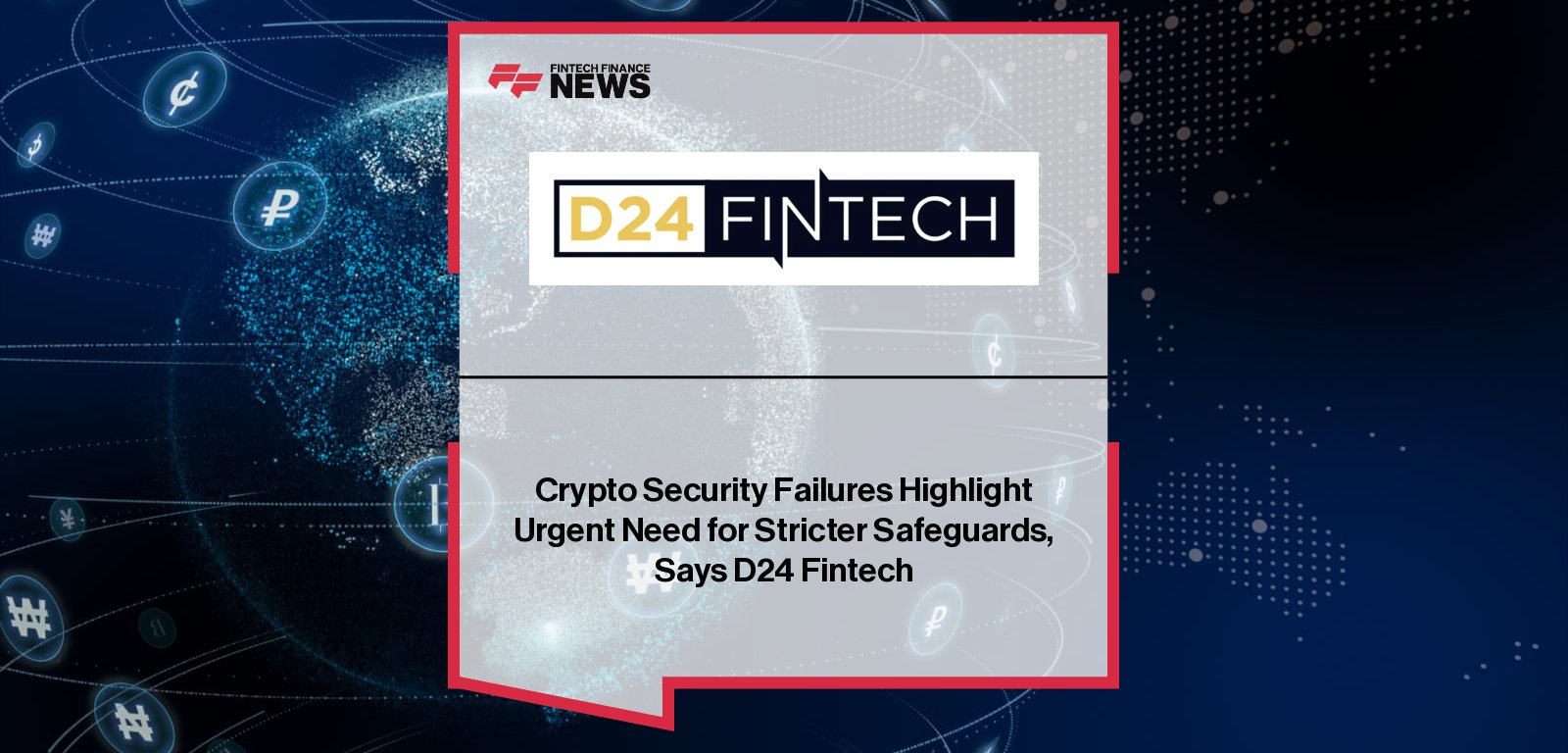Breaking News

Crypto Security Failures Highlight Urgent Need for Stricter Safeguards, Says D24 Fintech
The crypto industry is facing a fresh reckoning over security following a series of high-profile breaches. Some of the largest breaches included hackers stealing $1.5bn from Bybit, Phemex losing out on $69m in a crypto heist, and WazirX losing £230m. Despite the rapid mainstreaming of digital assets, vulnerabilities in exchange infrastructure continue to leave billions of pounds at risk.
According to Osama Bari, Chief Technology Officer at D24 Fintech, the solution lies in exchanges adopting a robust, layered security framework. “Exchanges are custodians of enormous financial value, yet many still underestimate the scale of responsibility they carry. Attacks like the CoinDCX breach serve as a reminder that even simple lapses can have devastating consequences. But by following a core set of rules, exchanges can drastically reduce their exposure.”
Bari points out several key areas where exchanges should act decisively:
- Multi-party approval systems to ensure large withdrawals require threshold-based verification and real-time anomaly checks.
- Two-factor authentication (2FA) should be a mandatory baseline for all accounts and personnel access.
- Custodian partnerships to provide additional safeguards for institutions managing millions or billions in assets.
- Biometric “liveness checks” to prevent hackers from bypassing accounts with stolen credentials or spoofed devices.
- Centralized exchange resilience (CEXs), where collaboration between platforms can freeze stolen assets quickly, limiting the damage of a breach.
“Security is no longer just a technical issue – it is central to trust, adoption, and the survival of exchanges themselves,” Bari continued. “What happened with recent crypto breaches like CoinDCX shows attackers don’t even need to touch user wallets directly to cause havoc. Exchanges must proactively strengthen defenses before rather than after disaster strikes.
“Looking ahead, several tailwinds are likely to support stronger crypto security. The growing ability of centralized exchanges to collaborate in freezing stolen assets is a critical development. At the same time, biometric identity checks, already adopted by 40% of banks worldwide, are becoming an increasingly important safeguard against fraud. Regulatory momentum is also building, pushing exchanges to meet stricter compliance and audit standards. Finally, partnerships with specialist custodians are expected to provide institutional-grade protection for customer funds, allowing exchanges to focus more effectively on innovation and user experience.
“Yet, the risks remain stark,” added Bari. “Hackers are increasingly deploying AI-driven tactics to bypass identity verification systems, while exchange vulnerabilities around multi-signature authorization, interface spoofing, and key management continue to be exploited. Geopolitical uncertainty and regulatory gray zones also leave space for hesitation and fragmented adoption of best practices.”
Bari concluded: “The industry has matured rapidly, but unless security is put at the very top of the agenda, trust in crypto markets will always be fragile. Stronger regulation, smarter technology, and a cultural shift among exchanges are needed to build the resilience this market deserves. Security must now be as much of a priority as innovation.”
People In This Post
Companies In This Post
- Lüt Announces Strategic Partnership with Safe Harbor to Expand Access to Compliant Closed-Loop Payments for Cannabis and Specialty Merchants Read more
- Figure Partners with moomoo and Keplr to Expand Global Access to the On-chain Public Equity Network (OPEN) Read more
- OneDome Raises $25M Pre-Series C, Bringing Total Funding to $40M Read more
- intelliflo and Söderberg & Partners Form Strategic Partnership to Drive Adviser Efficiency Read more
- Axiology Secures €5 Million Seed Funding to Accelerate the Modernisation of Europe’s Capital Markets Read more


















